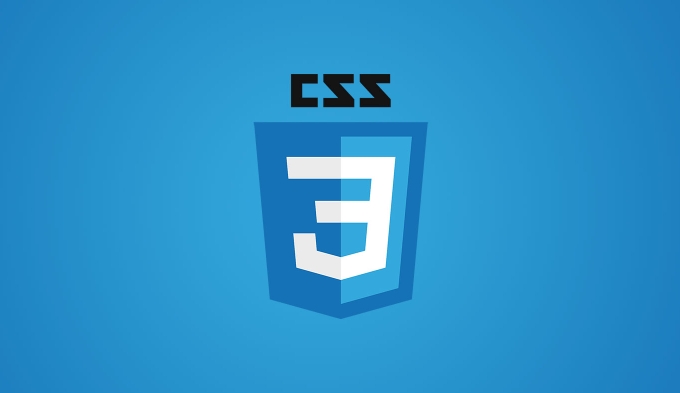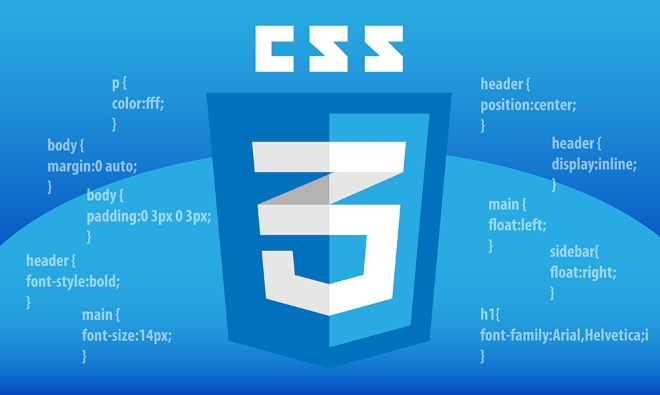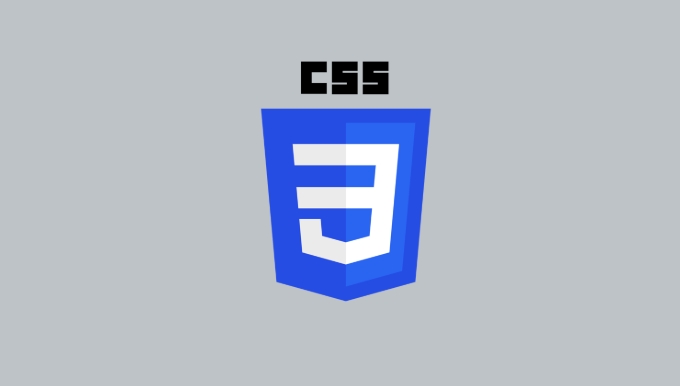Use position: sticky to achieve ceiling effect, and its core lies in understanding the mechanism and limitations of this property. position: sticky is a combination of relative positioning and fixed positioning, which is fixed to a certain position on the screen when scrolling to a set threshold (such as top: 0); 1. The threshold must be set to take effect; 2. The parent container cannot have restrictions such as overflow: hidden or transform; 3. It does not detach from the document flow, and the layout is still affected by it. Notes should be paid to: 1. Set a suitable z-index to prevent being blocked; 2. Check the parent container to prevent sticky failure; 3. Multiple sticky elements can be automatically stacked without manual intervention; 4. It is recommended to add background colors for table headers to prevent content from being exposed; 5. Will-change or JavaScript can be used on the mobile terminal to improve compatibility. Application scenarios include navigation bar, sidebar, table header, product classification label, etc.

It is actually not difficult to make a ceiling effect. The key to using CSS to implement sticky header lies in position: sticky property. It doesn't detach from the document stream like fixed, nor does it rely on the positioning context like absolute, but is in between, "sticking" on the screen when scrolling to a specific position.

What is position: sticky?
position: sticky is a combination of relative positioning and fixed positioning. During the page scrolling, an element will maintain its relative position until it reaches a set threshold (such as the top distance), and then become a fixed position.
There are several prerequisites for it to take effect:

- A threshold must be set, such as
top: 0 - Parent container cannot have restrictions such as
overflow: hiddenortransform - It will not be separated from the document stream, so other content will still be laid out around it
For example: You want the navigation bar to be fixed at the top of the screen when scrolling to the top, just write this way:
.header {
position: sticky;
top: 0;
z-index: 100;
}How to prevent obstruction or misalignment?
Although sticky is very convenient, there are two problems that are easy to encounter in actual use: being covered by other elements, or suddenly disappearing.

The solution is very simple:
- Add a suitable
z-indexto the sticky element to make sure it floats above the other content - Check whether the parent container has set
overflow: hiddenortransform, which will cause sticky to fail - If multiple sticky elements are stacked together, the browser will automatically process their hierarchy relationships without having to intervene too much manually
Sometimes you will find that the header disappears when it starts scrolling. This may be because it is suppressed by the elements behind it. Adding a background color or border can help you find the problem faster.
Flexible application in different scenarios
In addition to making navigation bars, sticky can also be used in many places:
- Sidebar directory follows scrolling
- The table header is fixed
- Product category label top
For example, to make a fixed header for a table, you can write it like this:
th {
position: sticky;
top: 0;
background: white;
}Note that you should add a background color to the table header here, otherwise the content will be revealed when scrolling, which will look very messy.
Another common problem is: on mobile terminals, sometimes sticky effects are not very stable. At this time, it is recommended to use will-change: position or use JavaScript to downgrade to ensure compatibility.
Basically all this is it. The core of implementing sticky header is to understand the mechanism and restrictions of position: sticky . It seems simple, but you still need to pay more attention to the details, especially the layout structure and cascade order.
The above is the detailed content of How to create a sticky header with CSS. For more information, please follow other related articles on the PHP Chinese website!

Hot AI Tools

Undress AI Tool
Undress images for free

Undresser.AI Undress
AI-powered app for creating realistic nude photos

AI Clothes Remover
Online AI tool for removing clothes from photos.

Clothoff.io
AI clothes remover

Video Face Swap
Swap faces in any video effortlessly with our completely free AI face swap tool!

Hot Article

Hot Tools

Notepad++7.3.1
Easy-to-use and free code editor

SublimeText3 Chinese version
Chinese version, very easy to use

Zend Studio 13.0.1
Powerful PHP integrated development environment

Dreamweaver CS6
Visual web development tools

SublimeText3 Mac version
God-level code editing software (SublimeText3)

Hot Topics
 How to use PHP to build social sharing functions PHP sharing interface integration practice
Jul 25, 2025 pm 08:51 PM
How to use PHP to build social sharing functions PHP sharing interface integration practice
Jul 25, 2025 pm 08:51 PM
The core method of building social sharing functions in PHP is to dynamically generate sharing links that meet the requirements of each platform. 1. First get the current page or specified URL and article information; 2. Use urlencode to encode the parameters; 3. Splice and generate sharing links according to the protocols of each platform; 4. Display links on the front end for users to click and share; 5. Dynamically generate OG tags on the page to optimize sharing content display; 6. Be sure to escape user input to prevent XSS attacks. This method does not require complex authentication, has low maintenance costs, and is suitable for most content sharing needs.
 PHP creates a blog comment system to monetize PHP comment review and anti-brush strategy
Jul 25, 2025 pm 08:27 PM
PHP creates a blog comment system to monetize PHP comment review and anti-brush strategy
Jul 25, 2025 pm 08:27 PM
1. Maximizing the commercial value of the comment system requires combining native advertising precise delivery, user paid value-added services (such as uploading pictures, top-up comments), influence incentive mechanism based on comment quality, and compliance anonymous data insight monetization; 2. The audit strategy should adopt a combination of pre-audit dynamic keyword filtering and user reporting mechanisms, supplemented by comment quality rating to achieve content hierarchical exposure; 3. Anti-brushing requires the construction of multi-layer defense: reCAPTCHAv3 sensorless verification, Honeypot honeypot field recognition robot, IP and timestamp frequency limit prevents watering, and content pattern recognition marks suspicious comments, and continuously iterate to deal with attacks.
 What are common CSS browser inconsistencies?
Jul 26, 2025 am 07:04 AM
What are common CSS browser inconsistencies?
Jul 26, 2025 am 07:04 AM
Different browsers have differences in CSS parsing, resulting in inconsistent display effects, mainly including the default style difference, box model calculation method, Flexbox and Grid layout support level, and inconsistent behavior of certain CSS attributes. 1. The default style processing is inconsistent. The solution is to use CSSReset or Normalize.css to unify the initial style; 2. The box model calculation method of the old version of IE is different. It is recommended to use box-sizing:border-box in a unified manner; 3. Flexbox and Grid perform differently in edge cases or in old versions. More tests and use Autoprefixer; 4. Some CSS attribute behaviors are inconsistent. CanIuse must be consulted and downgraded.
 How to build a PHP Nginx environment with MacOS to configure the combination of Nginx and PHP services
Jul 25, 2025 pm 08:24 PM
How to build a PHP Nginx environment with MacOS to configure the combination of Nginx and PHP services
Jul 25, 2025 pm 08:24 PM
The core role of Homebrew in the construction of Mac environment is to simplify software installation and management. 1. Homebrew automatically handles dependencies and encapsulates complex compilation and installation processes into simple commands; 2. Provides a unified software package ecosystem to ensure the standardization of software installation location and configuration; 3. Integrates service management functions, and can easily start and stop services through brewservices; 4. Convenient software upgrade and maintenance, and improves system security and functionality.
 Describe the `vertical-align` property and its typical use cases
Jul 26, 2025 am 07:35 AM
Describe the `vertical-align` property and its typical use cases
Jul 26, 2025 am 07:35 AM
Thevertical-alignpropertyinCSSalignsinlineortable-cellelementsvertically.1.Itadjustselementslikeimagesorforminputswithintextlinesusingvalueslikebaseline,middle,super,andsub.2.Intablecells,itcontrolscontentalignmentwithtop,middle,orbottomvalues,oftenu
 What is the accent-color property?
Jul 26, 2025 am 09:25 AM
What is the accent-color property?
Jul 26, 2025 am 09:25 AM
accent-color is an attribute used in CSS to customize the highlight colors of form elements such as checkboxes, radio buttons and sliders; 1. It directly changes the default color of the selected state of the form control, such as changing the blue check mark of the checkbox to red; 2. Supported elements include input boxes of type="checkbox", type="radio" and type="range"; 3. Using accent-color can avoid complex custom styles and extra DOM structures, and maintain native accessibility; 4. It is generally supported by modern browsers, and old browsers need to be downgraded; 5. Set accent-col
 How to compile SCSS to CSS?
Jul 27, 2025 am 01:58 AM
How to compile SCSS to CSS?
Jul 27, 2025 am 01:58 AM
InstallDartSassvianpmafterinstallingNode.jsusingnpminstall-gsass.2.CompileSCSStoCSSusingthecommandsassinput.scssoutput.css.3.Usesass--watchinput.scssoutput.csstoauto-compileonsave.4.Watchentirefolderswithsass--watchscss:css.5.Usepartialswith_prefixfo
 How to change text color in CSS?
Jul 27, 2025 am 04:25 AM
How to change text color in CSS?
Jul 27, 2025 am 04:25 AM
To change the text color in CSS, you need to use the color attribute; 1. Use the color attribute to set the text foreground color, supporting color names (such as red), hexadecimal codes (such as #ff0000), RGB values (such as rgb(255,0,0)), HSL values (such as hsl(0,100%,50%)), and RGBA or HSLA with transparency (such as rgba(255,0,0,0.5)); 2. You can apply colors to any element containing text, such as h1 to h6 titles, paragraph p, link a (note the color settings of different states of a:link, a:visited, a:hover, a:active), buttons, div, span, etc.; 3. Most






